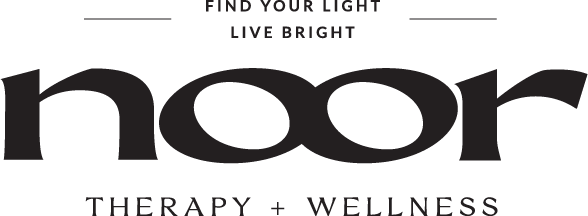5 reasons you need culturally informed therapy
Therapy is an investment of time, energy & money. Here are the top 5 reasons why you need culturally-informed care:
Being understood in therapy is essential. If your therapist doesn’t truly understand you, the connection, their support, and the whole process will be negatively impacted as a result.
1. Understanding
Culture refers to aspects of your identity like your age, religion, sexual orientation, race & ethnicity, socioeconomic status, disabilities, and more. Each of these, their intersections and how they interplay, directly informs your experiences in the world. Your culture impacts the way your perceive things, the way you behave, and the various mental health struggles you might face. There is no way to truly understand you and support your mental health without taking these factors into account.
Therapists using a culturally-informed approach also acknowledge the deeper, historical, and societal context underneath your issues, which ensures that you are not misunderstood or even blamed for your appropriate responses to oppression or injustice. This is a depathologizing approach that honors your humanity rather than causing harm.
Culturally-informed therapy is understanding care.
2. Safety
Related to understanding is safety. Safety is essential to good therapy. Feeling understood is part of feeling safe. It means that you can open up without fear of judgment or misunderstanding. If your therapist doesn’t understand you or acknowledge the context, they will not be able to empathize with or validate your experiences, which is essential to emotional safety. Without this safety, you might find yourself holding back from sharing things from your therapist, which is counterproductive to your transformation.
Without a commitment to their own cultural learning, therapists might rely on you to educate them. Sadly, this happens a lot with the children of immigrants and it is *not* your role or responsibility. You are there to be supported, not to provide free education. Therapists may even commit microaggressions, which are subtle acts or statements of discrimination, that can be very harmful to your mental health. Getting wounded in therapy is completely counterproductive and dangerous.
Culturally-informed therapy is safe care.
3. Effectiveness
As you feel understood and build a trusting relationship with your therapist, the work you do together will be more effective. A difficult process won’t be made harder by the other elements of trying to be understood or struggling to feel comfortable.
Additionally, your therapist will be working with your beliefs, worldviews, and values rather than against them. This means that they will make appropriate adjustments and collaborate with you, aiding you in reaching your goals. Compared to white Americans, ethnic minority groups underutilize services or prematurely terminate treatment. One of the reasons might be because they don’t feel like it fits or is effective. So adapting the work to fit your cultural context and value system ensures that you continue in the work and reap its benefits. So many children of immigrants have had experiences of theray that didn’t “work” because the way it was framed and approached was from a purely white, western framework.
Culturally-informed therapy is effective care.
4. empowerment
Embedded in culturally-informed therapy is the idea that there is no one universal way. This kind of care is inclusive, expansive, and flexible. It adjusts to the person rather than expecting that the person adjust to the treatment. It seeks to support your strengths and believes that you are the expert of you.
The foundation of trauma-informed care is choice, which means that culturally-informed care is trauma-informed care. Given that the majority of children of immigrants have remnants of intergenerational trauma, diasporic trauma, childhood trauma, racial, gender, religious, or sexual (orientation) trauma, trauma-informed care is critical.
A culturally-informed therapist will collaborate with you throughout the entire process. They will ask and answer questions and take your feedback into account so that therapy meets you where you are and meets your goals. You are given choice when it comes to your care, which is deeply empowering and respectful.
Culturally-informed therapy is empowered care.
5. holistic
Rather than just looking at your mental health as something that exists in a vacuum, culturally-informed care recognizes the various parts of your holistic wellbeing. The goal of therapy is not justg to “reduce your negative symptoms” but to truly think about how to have you feel like you are living a rich, free, and abundant life, aligned with your values, connected to a sense of purpose and vitality, and supported with networks of meaningful connections.
Traditional therapy has historically been devoid of politics, spirituality, and a discussion of bigger influences. Culturally-informed care brings together the pieces of your identity that are most important to you allowing for therapy to work in tandem with the other modalities you are using to support your mental health. This might mean incorporating your cultural and spiritual beliefs, bringing in art and creativity, working with the books you’re reading or the media you’re consuming, talking about your local politics, encouraging community advocacy and connection, and discussing your relationships.
Culturally-informed care is holistic care.
